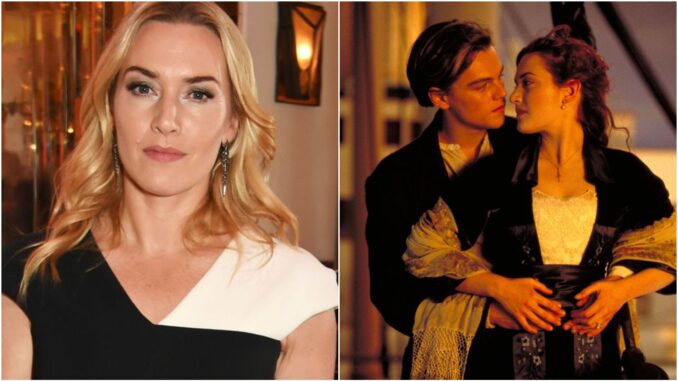
The Unseen Iceberg: Kate Winslet and the Cruelty After the Crest
The year was 1997. A cinematic behemoth, a love story on an unprecedented scale, launched itself from the silver screen into the collective global consciousness. Titanic wasn't just a film; it was a phenomenon, an emotional tidal wave that swept up its stars, Leonardo DiCaprio and Kate Winslet, into an instant, blinding spotlight. For Winslet, then a rising talent with an innate gravitas, the film should have been a triumphant coronation. Instead, as she has recently revealed, the immediate aftermath transformed her golden moment into a crucible of public judgment, a period of painful, pervasive bullying that bruised a spirit already navigating the dizzying heights of overnight fame.
Imagine, for a moment, being catapulted from a well-regarded actress to a global icon. The world, it seems, is at your feet. Yet, for Winslet, the adulation came with a cruel, insidious undertow. The praise for her talent, her undeniable chemistry with DiCaprio, was quickly overshadowed by a chorus of critics – not just professional reviewers, but the amorphous, relentless 'public' – who decided her body, her appearance, her very worth, were fair game for dissection. "Too fat," some whispers turned into shouts. "Not beautiful enough for Hollywood," others venomously echoed. Her every curve, every angle, every candid photograph was scrutinized under a merciless lens, reducing a vibrant young woman to a collection of perceived flaws.
This wasn't the kind of playground bullying where a swift intervention might cease the torment. This was a sustained, systemic onslaught, amplified by an era just before the full bloom of social media, yet potent enough through tabloids, talk shows, and nascent online forums. It was a thousand tiny cuts, each designed to chip away at her confidence, to make her question if she truly deserved the dazzling success that had found her. How does one, particularly a young woman barely out of her teens, withstand such an invasion? How does one reconcile the roar of applause with the stinging barbs that follow? Winslet herself admitted to feeling "criticized a lot" and even "bullied" by the press. The world expected her to be perfect, flawless, a porcelain doll, yet simultaneously delighted in tearing down any perceived deviation from that impossible ideal.
The pain she describes wasn't merely fleeting discomfort; it was a deep, psychological wound. In a landscape where her peers often succumbed to extreme diets or plastic surgery to fit a perceived mold, Winslet largely resisted, yet the pressure was immense. She spoke of retreating, of feeling that she "had to look a certain way," internalizing the negativity until it became a heavy cloak she wore. It’s a testament to her strength that she not only survived this public shaming but continued to flourish, building a career defined by integrity and a refusal to compromise her artistic vision for superficial standards. Yet, the scars, as her recent candidness reveals, were real and long-lasting.
Her decision to open up about this painful chapter decades later is more than just a personal revelation; it's a vital act of solidarity and a powerful commentary on the enduring cruelty of celebrity culture. From the vantage point of a seasoned, Oscar-winning actress, a mother, and a woman comfortable in her own skin, Winslet offers a beacon of understanding to countless others, particularly young people, who face similar, albeit digitally amplified, scrutiny today. She shows us that even the most successful, seemingly bulletproof individuals are vulnerable to the corrosive effects of unkindness.
Kate Winslet’s journey after Titanic was not just about navigating fame; it was about navigating a brutal storm of judgment. Her recent revelations peel back the veneer of glamour, exposing the unseen iceberg of cruelty that can lie beneath the surface of global success. It is a poignant reminder that behind every public face is a human being, susceptible to pain, and that the words we cast into the world, whether whispered or shouted, carry a weight that can take years, even decades, to truly heal. Her voice, decades on, serves not as a lament, but as a testament to resilience, a call for empathy, and a quiet, dignified defiance against the bullies of the past.